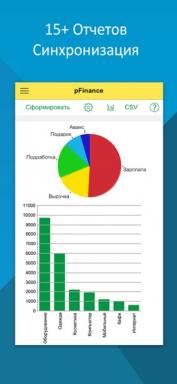Marketers plan to broadcast ads in their dreams
Miscellaneous / / November 25, 2021
No, this is not a new episode of Black Mirror.
According to the new essaypublished by sleep scientists at the Massachusetts Institute of Technology (MIT), Harvard and the University of Montreal, marketers are actively looking for a way to invade dreams. Recent survey The 400 US marketers also show that 77% of them plan to start using some form of dream advertising within the next 3 years.
Sleep hacking devices (TDI) already exist - for example, the Dream Lab team from the same MIT, back in 2020, talked about the creation of a gadget called Dormio. This is a glove that reads the indicators of a sleeping person, and when he is in the hypnagogic stage (intermediate state between sleep and wakefulness), reproduces sounds and smells, and also records reaction. This is repeated many times during sleep to consolidate the effect.
Dormio tested byDormio: A Targeted Dream Incubation Device with the participation of 25 volunteers, to whom the glove repeated the word "tree" over several sessions. As a result, 45 of the 67 sleep reports did mention trees - not as a background object, but as an important part of the dream. For example, one subject wrote that he dreamed that “the roots of trees pulsed with a strange energy, like as if pointing the way, "and another remembered that in a dream he was much higher than trees and could eat them, as appetizer.
It is noted that hacked dreams were distinguished by creativity and brightness, and this state can further serve as a source of inspiration for writers, artists and musicians. But marketers, of course, are not interested in the creative aspect of such developments.
What's more, two of the three essay writers have worked on Dormio, and one of them has already been contacted by several companies interested in commercializing TDI. But the key principles of such devices are relatively easy to understand and master - which means that soon marketers will no longer need the help of scientists.
American brewery Molson Coors earlier this year already spent testing a similar technique. The company invited volunteers to test TDI ads in exchange for free beer. In the process, the participants were shown before going to bed video clip with dancing beer cans, talking fish and other strange elements. Representatives of the brand said that 5 out of 18 subjects dreamed of Coors beer, but the results of the study were never published.
Scientists believe that the main danger of using such technologies is that a person may not remember anything. In the essay, the authors cite the studyOlfactory aversive conditioning during sleep reduces cigarette-smoking behaviorin which scientists mixed the smells of rotten eggs or fish with cigarette smoke next to sleeping smokers. Over the next week, the subjects smoked 30% less than usual, but did not remember smelling in their sleep.
Scientists believe that attempts to invade dreams should be, if not stopped, then at least controlled, and they call the plans of Molson Coors to sell unhealthy goods in this way unacceptable.
Read also🧐
- Why sleeping 6 hours a day is as bad as not sleeping at all
- 5 ways to resist the influence of ads
- 9 ad tricks we fall for
Black Friday: What you need to know about the sale on AliExpress and other stores



